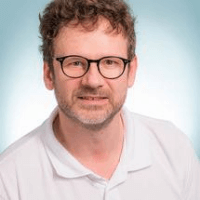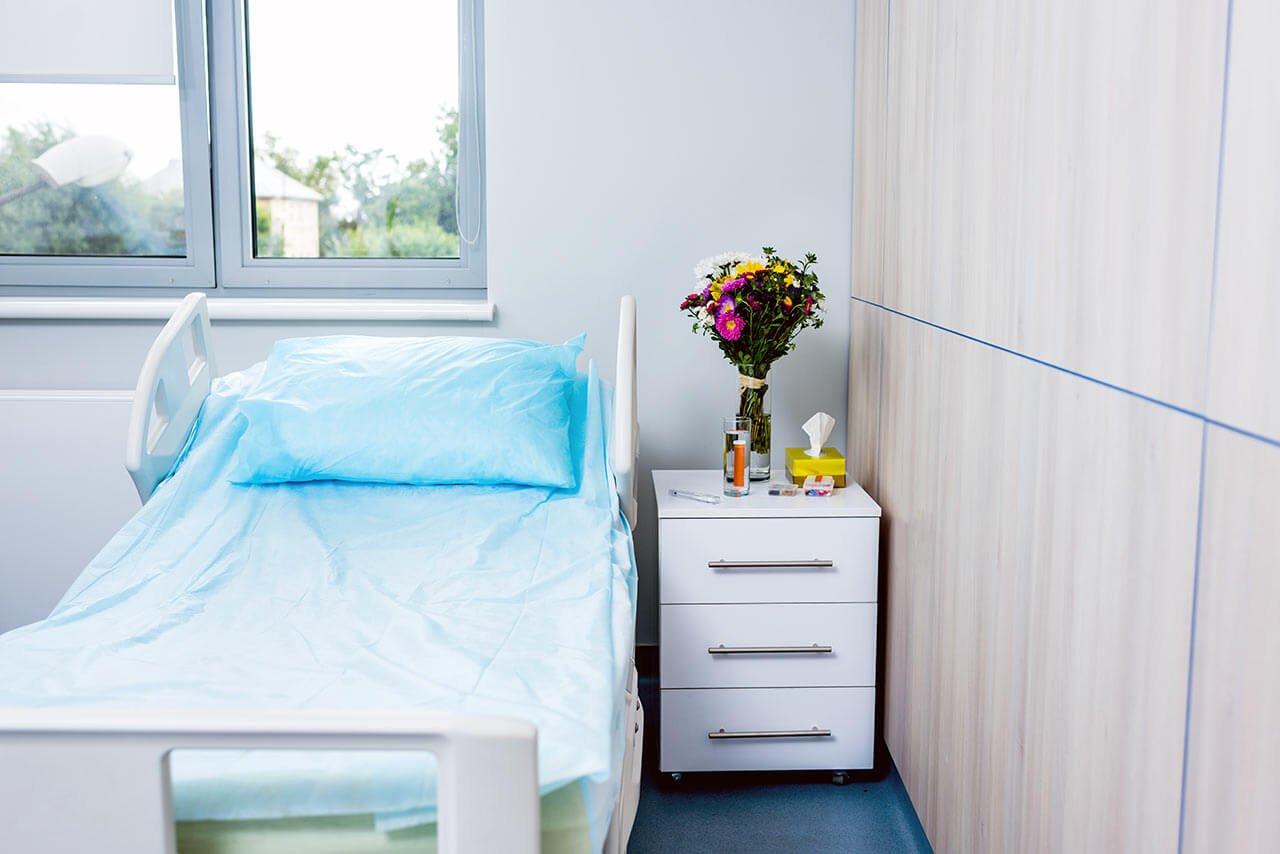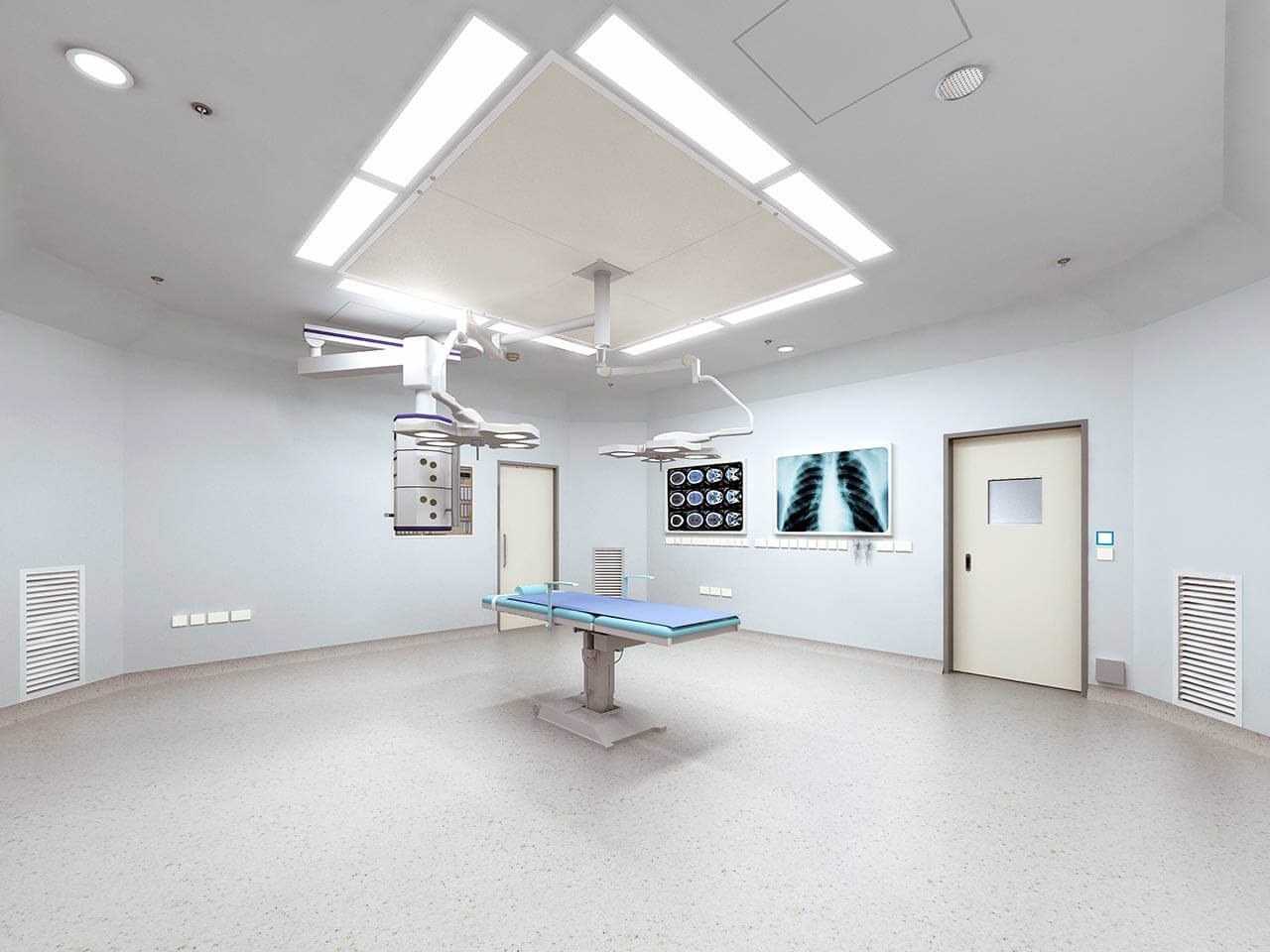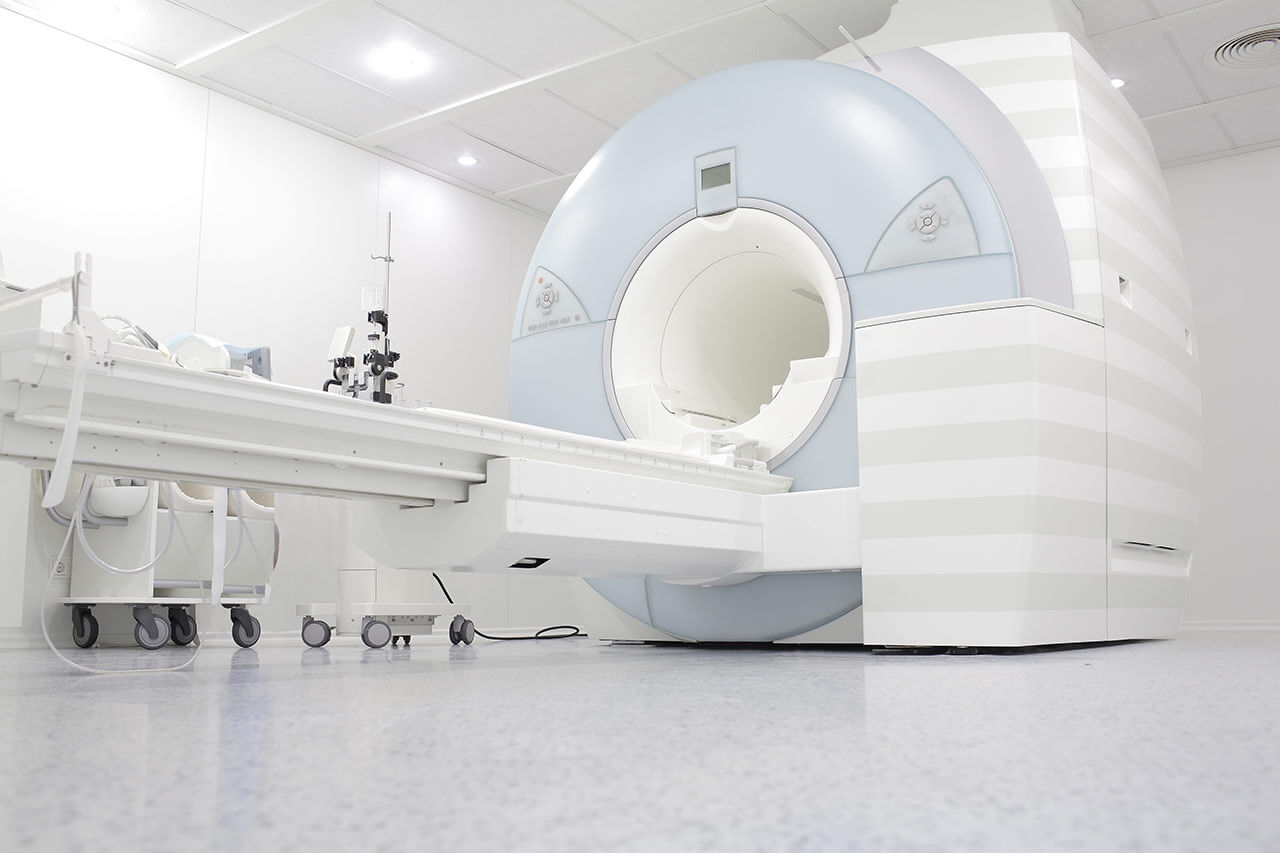
The program includes:
- Initial presentation in the clinic
- clinical history taking
- review of medical records
- physical examination
- laboratory tests:
- complete blood count
- biochemical blood test
- general urine analysis
- tumor markers (AFP, CEA, СА-19-9)
- inflammation markers (CRP, ESR)
- blood coagulation analysis (aPTT, PT, INR)
- ultrasound of the abdomen
- colonoscopy with biopsy
- CT/MRI of the abdomen (if clinically indicated, additional cost is 650/1200€)
- nursing services
- nutrition recommendations
- tumor board
- consultation of related specialists (radiology, surgery and oncology)
- treatment by chief physician and all leading experts
- explanation of individual treatment plan
Required documents
- Medical records
- MRI/CT scan (not older than 3 months)
- Biopsy results (if available)
Service
You may also book:
 BookingHealth Price from:
BookingHealth Price from:
About the department
The Department of Gastroenterology and Hepatology at the Hospital Neuperlach Munich offers the full range of modern diagnostic and therapeutic methods for diseases of the gastrointestinal tract, pancreas, bile ducts, gallbladder and liver. One of the most important focuses of the department's work is colon cancer treatment. It is provided within the specialized Colon Cancer Center certified in accordance with the requirements of the German Cancer Society. In addition, the department has special competence in the treatment of chronic inflammatory bowel disease – Crohn's disease and ulcerative colitis. The patients' health is in the safe hands of the highly professional medical team consisting of 16 doctors and 34 nurses. The department's specialists cooperate closely with doctors from the Department of General and Abdominal Surgery, as well as with external partner hospitals. More than 3,500 patients undergo treatment in the department every year, which indicates a high level of patient's satisfaction with the quality of medical care. The department is headed by Dr. med. Markus Dollhopf.
The treatment of colon polyps and colon cancer is an integral part of work of the department's gastroenterologists. The medical facility has advanced endoscopic equipment, with the help of which the doctors can accurately examine the colon and, if necessary, perform sparing interventional treatment. Colonoscopy is usually sufficient to detect colon polyps. In addition, the department successfully uses such diagnostic methods as narrow band imaging and chromoendoscopy, which allow obtaining comprehensive information about the degree of polyp growth into the bowel wall, determining their clear boundaries, etc. Should pathology be detected, the doctor can immediately remove the polyps using endoscopic techniques. As of today, the department's excellent medical and technical base enables the doctors to perform endoscopic removal of large polyps, which previously required an open surgical procedure. After resection of intestinal polyps, the doctor sends a sample of the removed tissue for microscopic examination to exclude colon cancer. Thus, timely detection and removal of polyps prevents the development of the oncological process, as well as massive bleeding, which are a common complication of this pathology. If the follow-up microscopic diagnostics confirms colon cancer, the patient will have to undergo additional imaging tests in order to determine the exact type of tumor, its stage, localization, presence or absence of metastases, etc. With all the diagnostic data, gastroenterologists jointly with the specialists from related medical fields prescribe the required therapeutic measures. At the initial stages of the oncological process, the doctors can often perform endoscopic resection of the tumor. If the cancer spreads metastases, then the patient requires surgery, which is performed in cooperation with abdominal surgeons. The surgical procedure can be complemented by chemotherapy or radiation therapy, the type and duration of which are determined for each patient individually.
An equally important focus of work of the department's medical team is esophageal cancer treatment. Unfortunately, in most cases, esophageal cancer is detected at the advanced stages, since the patient does not experience any symptoms for a long time, which could become a reason for visiting a doctor. When the first symptoms manifest themselves, the tumor is usually at the advanced stages, which greatly complicates treatment and reduces the chances for a complete recovery. Barrett's esophagus is often the precursor to esophageal cancer. If during endoscopic diagnostics, the department's gastroenterologists detect a pathology, the patient receives the required treatment. The department's therapeutic options include endoscopic mucosal resection, endoscopic submucosal dissection, hybrid argon plasma coagulation and radiofrequency ablation. However, if doctors suspect esophageal cancer, endoscopic examinations will be complemented by advanced imaging diagnostics (X-ray, CT, PET-CT). The treatment regimen for each patient is developed at an interdisciplinary tumor board with the participation of gastroenterologists, abdominal surgeons, radiologists, chemotherapists and other experts. The treatment of esophageal cancer is based on the surgical resection of the tumor, which is often complemented by chemoradiation therapy. The department's medical team has vast experience in the treatment of esophageal cancer, so the patients can count on highly qualified medical care.
The department's gastroenterologists often admit patients with suspected chronic inflammatory bowel disease (Crohn's disease and ulcerative colitis). To confirm the diagnosis, the specialists carry out comprehensive diagnostics, which includes laboratory tests, ultrasound examinations, colonoscopy, magnetic resonance imaging and other tests. The first line treatment for chronic inflammatory bowel disease is drug therapy and diet therapy. In some cases, even at the stage of endoscopic diagnostics (colonoscopy), the specialist can perform therapeutic procedures to dilate stenotic sections of the intestine, stop gastrointestinal bleeding or remove polyps. If medical treatment does not give good results, the doctors will have to resort to surgery. The surgical treatment for Crohn's disease and ulcerative colitis is provided in cooperation with abdominal surgeons. As a rule, the operation is performed using sparing minimally invasive techniques.
The department specializes in the diagnostics and treatment of the following diseases:
- Malignant diseases
- Colon cancer
- Stomach cancer
- Esophageal cancer
- Pancreatic cancer
- Gallbladder cancer
- Bile duct cancer
- Neuroendocrine tumors
- Benign diseases
- Colorectal polyps
- Stomach polyps
- Barrett's esophagus
- Chronic inflammatory bowel disease (Crohn's disease and ulcerative colitis)
- Gallstone disease
- Cholestasis
- Jaundice
- Pancreatitis
- Other pathologies
The department's range of medical services includes:
- Diagnostics and treatment of diseases of the esophagus, stomach and colon
- Diagnostic tests
- High-resolution videoendoscopy
- Endosonography
- High-resolution sonography, including Doppler and color Doppler, as well as liver elastography
- Contrast-enhanced ultrasonography and contrast‑enhanced harmonic endoscopic ultrasound
- Capsule enteroscopy
- Diagnostic double-balloon enteroscopy
- High-resolution esophageal manometry
- 24-hour esophageal manometry
- Hydrogen breath test
- Therapeutic procedures
- Therapeutic double-balloon enteroscopy
- Endoscopic polypectomy
- Endoscopic mucosal resection
- Cap-assisted endoscopic mucosal resection
- Endoscopic submucosal dissection
- Radiofrequency ablation of the esophagus (HALO technology)
- Argon plasma coagulation
- Percutaneous endoscopic gastrostomy
- Diagnostic tests
- Diagnostics and treatment of diseases of the pancreas, biliary tract and liver
- Diagnostic tests
- Cholangioscopy and pancreatoscopy
- Diagnostic endosonography
- Sonography, including color Doppler and duplex sonography, as well as contrast-enhanced sonography and liver elastography
- Therapeutic procedures
- Endoscopic retrograde cholangiopancreatography, percutaneous transhepatic cholangiodrainage and lithotripsy with electrohydraulic shock wave generation for the treatment of gallstones and pancreatic stones
- Therapeutic endosonography
- Ultrasound-guided puncture and drainage of abscesses
- Radiofrequency ablation of the bile ducts, including for inoperable bile duct tumors
- Transduodenal papillectomy
- Diagnostic tests
- Palliative endoscopic procedures
- Stent implantation in case of stenosis caused by gastrointestinal cancers (esophageal, stomach, small and large bowel cancers), as well due to benign neoplasms (rare)
- Endosonographic-guided gastroenterostomy for the formation of bypasses for the movement of food masses in the case of stenoses caused by malignant and benign tumors
- Internal biliary drainage in case of malignant tumors with a biliodigestive anastomosis on the duodenum, stomach or jejunum
- Percutaneous endoscopic gastrostomy
- Placement of percutaneous bile drains
- Placement of percutaneous drains for malignant ascites or pleural effusion
- Other medical services
Curriculum vitae
Higher Education and Professional Career
- Study of Human Medicine at the Friedrich Alexander University Erlangen-Nuremberg.
- Since 1999 Assistant Physician, Department of Gastroenterology and Hepatology at the Hospital Neuperlach Munich.
- 2008 Board certification in Internal Medicine.
- 2010 Position of Senior Physician, and in 2012 – Senior Physician with management responsibilities.
Qualifications
- Since 2005 Tutor at the Munich GATE Courses on esophagogastroduodenoscopy and colonoscopy.
- Since 2006 Tutor at the Munich GATE Course in Endosonography.
- Since 2008 Tutor at the Munich GATE Course in Endoscopic Retrograde Cholangiopancreatography.
- 2012 Tutor in abdominal and retroperitoneal ultrasound diagnostics certified by the German Society of Ultrasound in Medicine (DEGUM).
Awards and Honors
- 2005 Felix Burda Award in Medicine for personal contribution to the Munich Polypectomy Study (MUPS).
Photo of the doctor: (c) München Klinik Neuperlach
About hospital
The Hospital Neuperlach Munich provides modern medical services of the highest quality. The medical center is an Academic Hospital of the Ludwig Maximilian University of Munich, and therefore it can offer its patients innovative diagnostic and therapeutic methods available only in the best German hospitals. The medical complex opened its doors to patients on September 12, 1972 and to this day holds a leading position in the country's medical arena. The medical facility has 500 beds. The highly qualified doctors of the hospital annually admit over 59,000 patients for both diagnostics and treatment, including patients from foreign countries.
The hospital is distinguished by its rich experience and high success rates in conservative and surgical treatment of diseases of the gastrointestinal tract, liver, metabolic disorders, cancers and blood diseases, heart diseases, as well as vascular pathologies. The hospital operates a highly specialized Colon Cancer Center certified by the German Cancer Society. The center is one of the largest medical facilities of this kind in Germany and has advanced therapeutic options for the treatment of life-threatening colon disease. In addition, the hospital provides high-quality obstetric services – more than 1,000 babies are born here annually.
For outstanding achievements in various medical specialties, the hospital was awarded with many prestigious certificates, including the IQM certificate, the DIN EN ISO 9001:2008 certificate, the DGAV certificate as a Competence Center for Liver and Pancreatic Surgery, the DDG certificate of the German Diabetes Society and others. The above mentioned certificates testify to the excellent quality of medical service.
Special attention should be paid to the medical staff of the hospital who have extensive clinical experience and do everything possible to achieve a complete recovery of the patient. During the treatment, both doctors and nursing staff surround the patient with maximum care, support him in every possible way and show a humane attitude. The work of physicians is based on an individual approach to each patient and his clinical case.
Photo: (с) depositphotos
Accommodation in hospital
Patients rooms
The patients of the Hospital Neuperlach Munich live in single, double and triple rooms with all the amenities for a comfortable stay. The patient rooms have a modern and cozy design. Each patient room has an ensuite bathroom with shower and toilet. The furnishings of a standard patient room include an automatically adjustable bed, a bedside table, a wardrobe, a modern multimedia system with a TV and telephone, a table and chairs for receiving visitors. Wi-Fi is also available in the patient rooms.
The patients can also stay in the enhanced comfort patient rooms, which additionally include a safe, a minifridge and upholstered furniture.
The hospital also has a library with a large assortment of books, magazines, CDs and DVDs. In addition, there is a cozy cafe on the territory of the hospital, which offers its guests a variety of delicious snacks, pastries, cakes, ice cream and various drinks. The cafe also has a takeout service.
Meals and Menus
The patient and his accompanying person are offered tasty and healthy three meals a day. All dishes are cooked only from fresh and high quality ingredients. Breakfast and dinner are served buffet style, and the patient can choose the dishes that he likes on his own. For lunch the patient has a choice of three menus, one of which is vegetarian.
If you are on a specific diet for some reason, you will be offered an individual menu. Please inform the medical staff about your dietary preferences prior to the treatment.
Further details
Standard rooms include:
Religion
The religious services are available upon request.
Accompanying person
During the inpatient program, the accompanying person can live with the patient in a patient room or a hotel of his choice. Our managers will help you choose the most suitable option.
Hotel
During the outpatient program, the patient can stay at the hotel of his choice. Our managers will help you choose the most suitable option.





